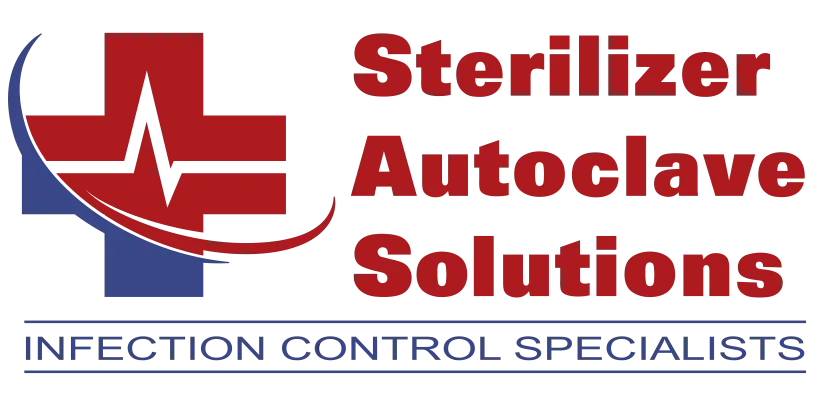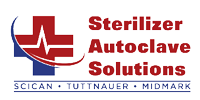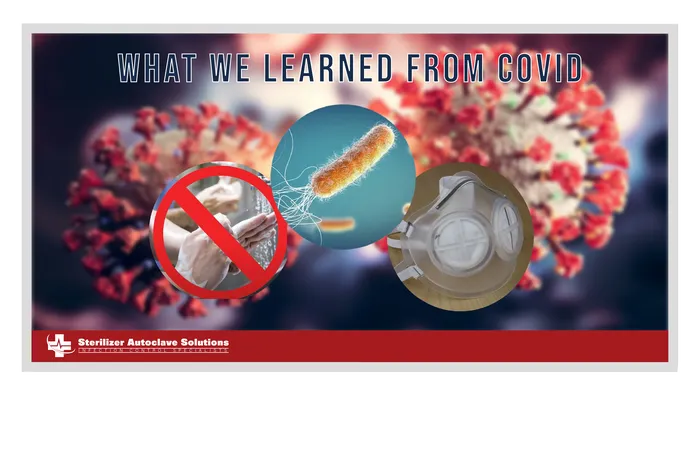What We Learned from the COVID-19 Pandemic
Just 4 years ago, we all were put through a pandemic-level event because of the Coronavirus… And it changed everything. This pandemic permanently changed the way we went about our daily lives for so long, that we didn’t even know what was in store for the future. As changes continued, we started to learn things about how we operated before the pandemic, and we also learned how we should adapt our current systems to be better suited should something like this ever happen again. Questions lingered in the minds of everyone across the world for the next few years.
Let’s face it, obviously, we were not ready for this. People around the world were faced with a lockdown, forced to stay in their homes to prevent the spread. Businesses of all kinds shut down and were only opened based on importance. And the strain that the rapid rise in cases put on the medical industry was huge. And since we here at Sterilizer Autoclave Solutions have our fingers on the pulse of the sterilization industry, we saw it all happen in real time. Medical facilities being filled to the brim trying to treat as many cases as they could. Product shortages that extended to important things like personal protection equipment. Corners being cut constantly over basic hygiene practices that would never normally be considered just to save time and get back to the action. We saw it all, and we also saw how these various factors continued to shape the post-COVID world, for better and worse.
The lessons that the pandemic taught us may vary from place to place, even person to person. But with SAS, we’ve gathered a few things that it definitely taught us. It made us think of the questions we should be asking ourselves and others. Like… “What can we do to continue to keep our customers safe?” “We used to prioritize the infection control standards, but do we still do that post-pandemic?” “Are you still prioritizing it?” “What are you doing to ensure that you’re keeping yourself safe?”
With of these thoughts and questions in mind, we wanted to use this article and take a look at a few things that we learned through events of the pandemic moving forward. The lessons we learned, and the ways we’re ensuring that we’re always covered.
First Point
Here’s one, the pandemic contributed to disinfection habits that were actually harmful in the long run. What do we mean by that? Well, we made a short not too long ago about a report about how there was a new rise in superbugs.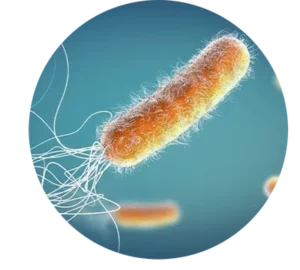 You know, the antibiotic resistant bacteria.
You know, the antibiotic resistant bacteria.
Superbugs are created when someone becomes overexposed to things like cleaning products or disinfectants. The bacteria that survive the overuse of the substance adapt and become more and more resistant to the things we create to get rid of them. And then in turn, when you get sick, they’re that much harder to get rid of. But the article attributed to the new wave of superbugs to COVID disinfection practices. Citing that it was caused by habits picked up during the pandemic, like the need to disinfect everything all the time, including things that these disinfection products weren’t even made to be used on, like furniture or clothing.
But it’s not like anyone is at fault, everything happened so fast that panic set in and if the one thing that comes to mind is to scrub the place down, that’s probably what you’re going to do. So what we’ve tried to do is put a spotlight on proper infection control practices. Whether it’s through our products that we sell for proper protection, or through our services like articles and videos that showcase the proper way to do things.
Second Point
The second thing we noticed is the research being put into reusable PPE after the mass shortages were in place. For this example, we can turn to our short video we made discussing research on a new reusable silicone variant of a regular N95 respirator. This new mask was made to be put into an autoclave sterilizer and reused a certain number of times to reduce the use of disposable equipment during an event like the pandemics mass shortage on masks (seen below). They aimed to cut material use as well, having only the filters be disposed of as opposed to the entire mask, leaving more material on hand for later production. Now as of this video, the mask is still in development, but the point stands.
![]()
As a company in the business of infection control, this mask is a game changer. It would be very beneficial in the long run to have a mask that’s reusable all while significantly cutting costs. But we also noticed that during the pandemic, one thing that may have gotten pushed to the side due to many constraints is the context of medical masks. Every mask, like gloves, are rated for different environments due to their build quality.
Take Halyard for example, and their level 1 and level 3 masks. Their masks allow for proper decision making, and with their level 1 mask, you’re rated for general use operations. Day-to-day tasks around your medical practice that don’t require the largest layer of protection.
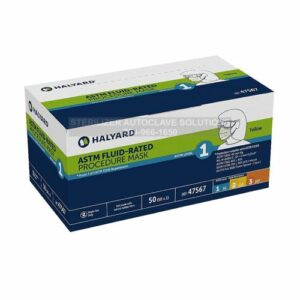
But then if you NEED more protection, you can take their Level 3 masks that are rated for the highest level of fluid protection. Finding the proper mask for your specific situation can help alleviate shortages, as using the right mask preserves each level of protection for that specific situation.
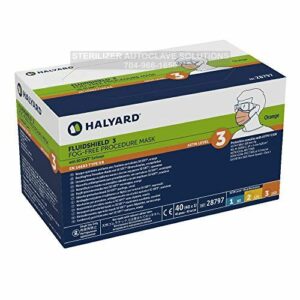
Third Point
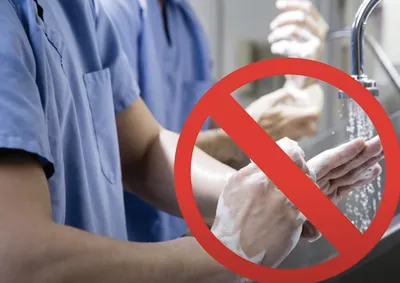
And lastly, we noticed is that hand hygiene is being put back on the back burner. There were a few factors that the pandemic attributed to, like lack of resources, time management to get to patients quicker, and so on…but the main symptom seemed to stem from the lax enforcement of hand hygiene once the pandemic stage came to a head and things returned to a new norm. Studies after the pandemic had shown much lower counts of hand hygiene and some places were even saying that not practicing hand hygiene was just as effective before donning surgical gloves as it was by doing it.
So the various worldwide health organizations are constantly stressing its importance, and even working on new protocols to insert into various practices that are lacking in it by putting steps in place to promote better hand hygiene. Like an updated list of steps from the Society for Healthcare and Epidemiology that updates their hand hygiene protocols yearly. And this is hardly the only step being taken, as there are movements worldwide to initiate a new wave of hand hygiene to better prevent infections and future disease all around the world.
Even we here at SAS make it our mission to enforce our authority as infection control specialists. Sure, we don’t make the rules, but we do our best to spotlight them and help you understand their importance. Through our various content streams, email blasts, and even our products, we have various ways to help you understand and continue to practice better hygiene and infection control. We’re always here to help, and we’re here to answer any questions about all things infection control, or navigate you to the product that’s perfect for you.
Final Thoughts
The COVID-19 pandemic has had a profound and lasting impact on the world, prompting significant changes in our daily lives and reshaping our systems and practices. The pandemic highlighted the shortcomings in the various parts of our infection control industry, and it had a lot of implications on the future. It underscored the importance of proper infection control practices and the need to educate and promote responsible usage. Additionally, the mass shortages of personal protective equipment (PPE) prompted research into reusable options to address future shortages and reduce material waste. And it revealed a decline in hand hygiene practices, prompting global health organizations to emphasize its importance and develop new protocols to promote better hygiene practices. Moving forward, it is essential to integrate the lessons learned from the pandemic into our ongoing efforts to ensure the safety and well-being of individuals and communities worldwide. As infection control specialists, we at Sterilizer Autoclave Solutions are committed to supporting and promoting these vital measures through our products, content, and expertise.
And we’ll continue to do so through our vast selection of infection control products, support lines and programs to ensure that all your bases are covered. I you have any questions about anything we offer, give us a call at 704-966-1650 Option 3 for our Free Tech Support Line. Or you can find our various programs using the links in the description.
As always if you have any questions about this process or anything else please feel free to contact us and take advantage of our “FREE TECH SUPPORT.”
We also offer FREE VIRTUAL TECH SUPPORT to “See and Talk” with a “Real Time Live Technician” for any problems you may be in need of help with.
You can also use our “FREE MAINTENANCE PROGRAM”. Take the guesswork and worrying about what unit is due for maintenance and which maintenance cycle it is time for. We will keep track of all your autoclaves and let you know when it’s time for anything.
